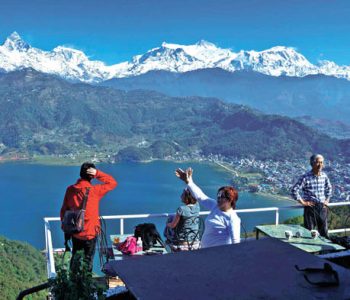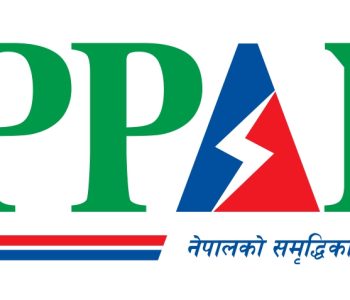Policy change needed to curb post-COVID distortion of foreign employment

KATHMANDU: Kathmandu: Stakeholders have pointed out that a large number of Nepali youths should be provided foreign employment with guarantee of their job security after the corona virus (COVID-19).
This was pointed out by the stakeholders at an interaction program titled ‘Foreign Employment Challenges after COVID’, organized by the Foreign Employment Journalists Society on Wednesday.
More than 4.3 million Nepalis are currently involved in foreign employment and a large number of them are working in countries with which Nepal does not have any labor agreement. Thus, stakeholders have suggested the government to protect the rights of its citizens through labor agreements.
Speaking during the event, Director General of the Department of Foreign Employment, Kumar Prasad Dahal, said that the COVID-19 pandemic has added more challenges in streamlining the foreign employment sector and that certain polices needed to be changed for the betterment of migrant workers.
Although the department has simplified the work approval process by carrying out its works through the Foreign Employment Information Management System which has been implemented for the past few years, there still exist some problems.
Stating that the foreign employment information system is linked to immigration and the work of paying re-employment insurance is also being done online, Dahal informed that the department is working on getting rid of the compulsion for migrant workers to come to Nepal to get a permit to continue with their work once their earlier approval has expired.
He further added that the Foreign Employment Act has given great advantage to the private sector but the private sector has not been able to fulfill its responsibilities accordingly.
Dahal also mentioned that the lack of manpower with knowledge about the intricacies of foreign employment in Nepali embassies abroad is one of the reasons for the lack of secure foreign employment. He said that the officials in Nepali missions do not have the capacity to monitor and supervise the workers and listen to their grievances in a proper manner.
Thus, for safer migration labor diplomacy should be emphasized. Dahal mentioned that demand for workers in Europe has risen but the Nepali missions have not been able to bring that demand to Nepal.
Purnachandra Bhattarai, former secretary of Nepal government, said that the government has set a target of providing employment to 800,000 youths in the country itself this year, which will reduce the pressure on foreign employment. Stating that the situation that the country had to face due to the coronavirus in the past seven months will now lead to a ‘new normal’, Bhattarai suggested that the ‘COVID capsule course’ be added to the employment orientation program before starting a new phase of foreign employment.
Sujit Kumar Shrestha, general secretary of the Nepal Foreign Employment Entrepreneurs Association, said that entrepreneurs have gradually started opening their offices at the moment. Estimating that at least 1.2 to 1.3 million youths will enter the labor market if foreign employment is facilitated, he said that the government is not doing its homework to accommodate them.
He said, “It is necessary for the foreign employment sector to be better managed. It is time now that the government needs to have a look at the current policies and amend them where and when needed.” Shrestha added that it is time for both the entrepreneurs and government to fulfill their obligations in a proper manner and listen to the voices of the migrant laborers.
Shrestha mentioned that a major problem was that the Nepali missions have failed to verify the demand letter even though it has been said that the work permit will be issued on the recommendation of the Nepali mission of the destination country. He said that there is a demand for 40,000 placements from Saudi Arabia but they have not been verified.
The demand from the service sector in the United Arab Emirates is low. Demand from the construction sector, semi-government and free zone has come but it has not been verified, he added. “If the demand letter is not verified immediately after the Dashain vacation, the demand coming to Nepal will go to other countries,” he stated.
Stating that more than 66 percent of the workers going for foreign employment are working in low-paying jobs, Secretary General Shrestha said that training of international standards should be provided in Nepal to end the exploitation due to lack of information about rights. He said that business people and associations are ready to cooperate with the government for that.













Facebook Comment